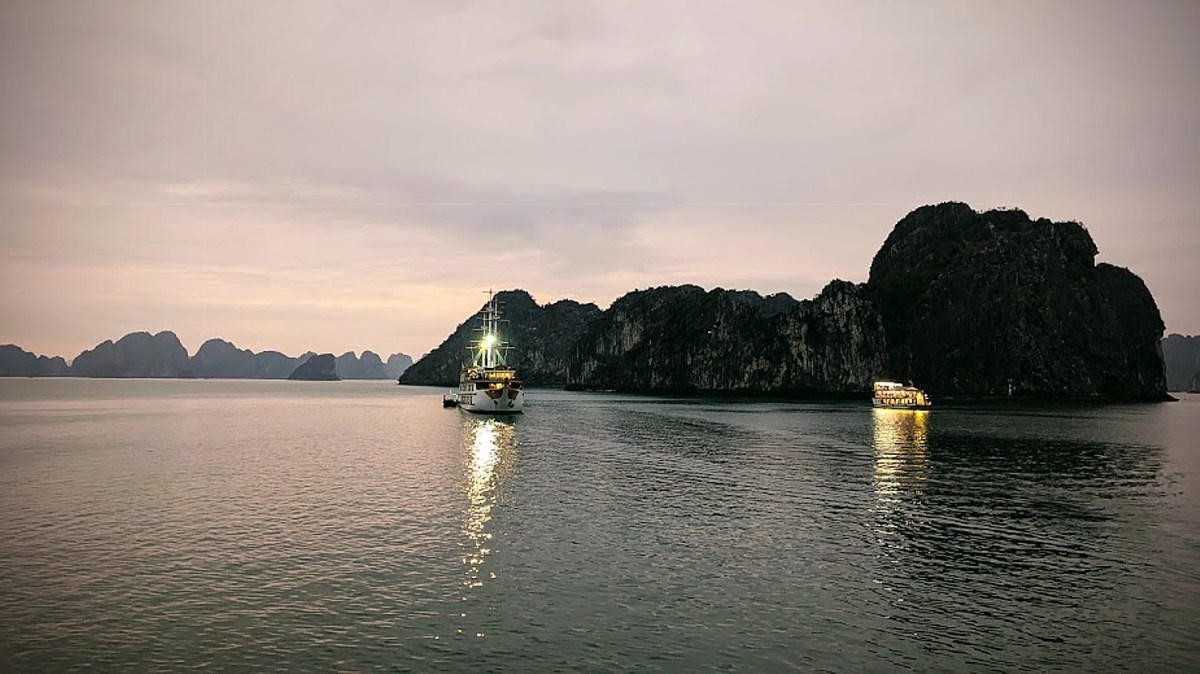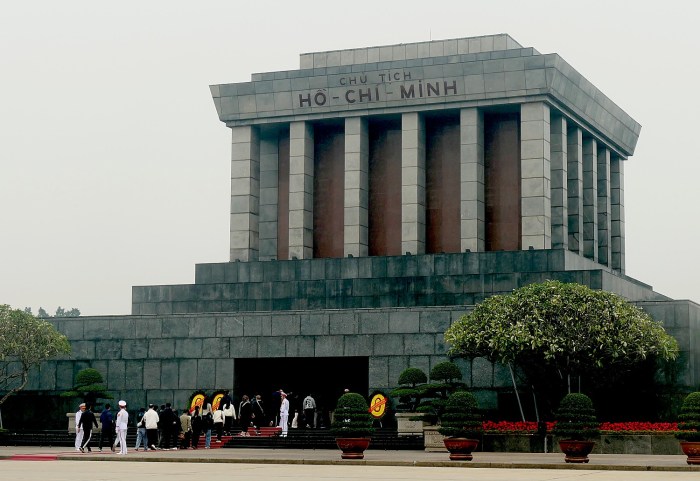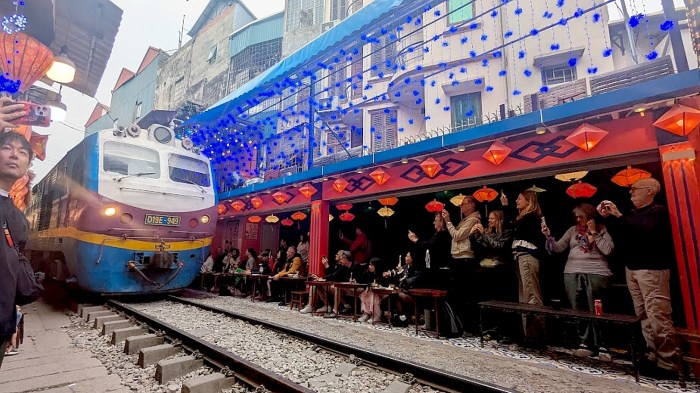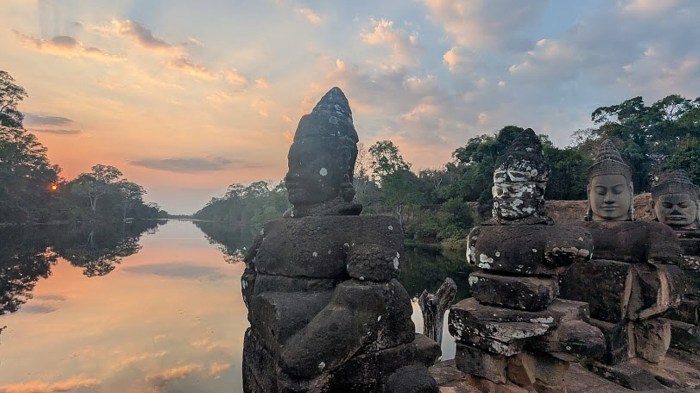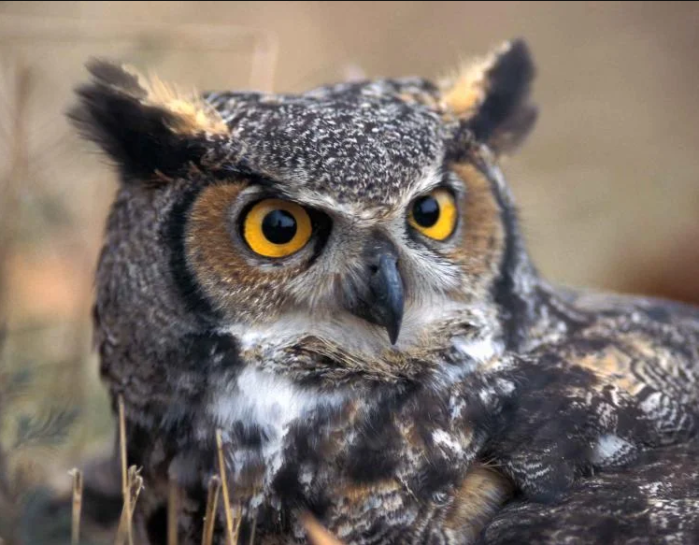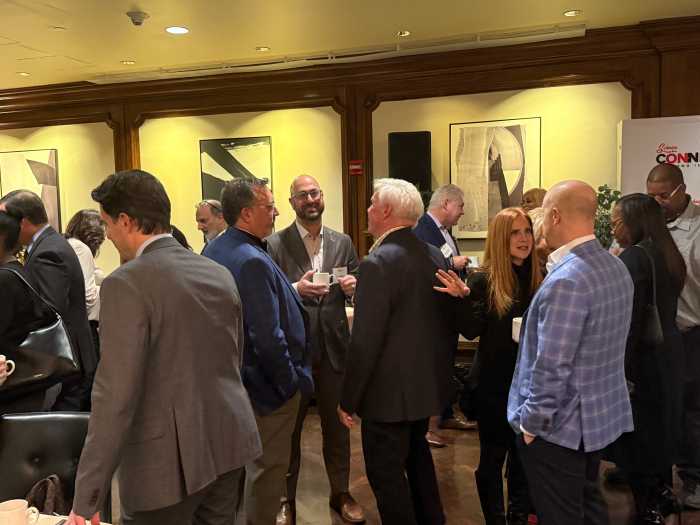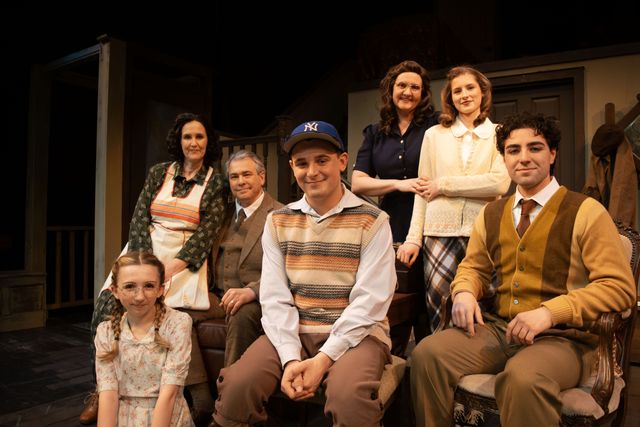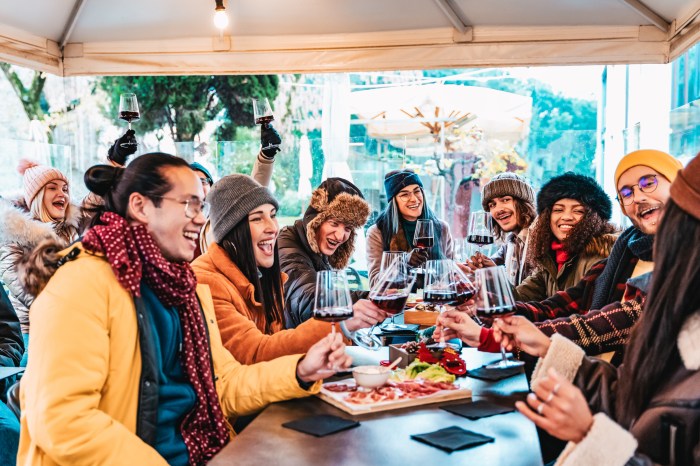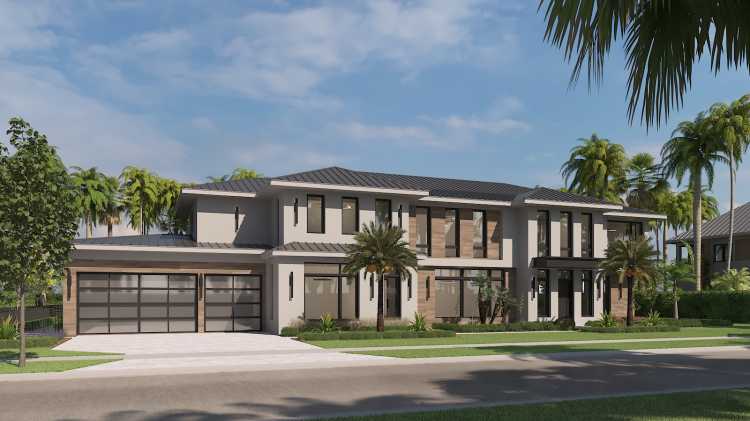By Karen Rubin, Travel Features Syndicate, goingplacesfarandnear.com
Soon after embarking on the Dragon Legend for our overnight cruise of Bai Tu Long Bay, we are captivated by the picturesque karst islands that dot from the water, a dreamy landscape evoking classical paintings.
It is our fourth day on Discovery Bicycle Tours’ Vietnam tour, and we had set out from the magnificent Emeralda Resort in Ninh Binh right after breakfast.
Along the drive, we see massive industrial parks being built on land that had been used to cultivate rice, big enough to have 500,000 workers.
What we don’t see, though, are housing communities and roads that would deliver those workers – so I wonder if that is because workers are housed within the industrial compounds and only see their family four days in the month? I wonder why in this freer, more prosperous, modern Vietnam they do not build industrial parks with adjacent communities with schools, groceries, parks, so that workers can have a family life, while young, single workers can live in worker housing and save money.

We see a bus load of young recruits starting their mandatory two-year military service. They are being followed by supportive friends on motorbikes, waving flags, seeing them off.

As we drive through the countryside, it seems just about every square meter is farmed or built on with houses. The new industrial parks that are being constructed near Hai Phong, Vietnam’s largest port in the north. In1964, Hai Phong, the biggest seaport in Vietnam, was the supply post from Russia and China and was the most heavily bombed.
Today, our bus is traveling on the beautiful and modern 120 km long Hanoi-Hai Phong Highway.
The government is extending the highway to go all the way north-to-south and constructing an express (bullet) train “so you would be able to have breakfast in Hanoi and lunch in Saigon.” The contractors are from Japan and China.
The rest stop on the highway offers a fascinating demonstration in the technique for oyster pearl farming devised here: a method of cutting a membrane, treating the oyster with an anti-bacterial, then implanting a seed into the oyster to stimulate the oyster to produce a pearl. “Like IVF for the oyster.”

Then the treated oyster is placed in a mesh bag (they can stay out of water for five hours), which will be put into the sea where it takes one to five years to cultivate the pearl.

She tells us that 30% of these oysters survive; of these, only 20% produce a pearl of sufficient quality for jewelry (there are grades like for diamonds).
At another station, we get to see the oyster opened to extract a pearl. Believe it or not, the oyster can be eaten after this.

Every part of the oyster has a use. The “irregular” ones with no shine are crushed for cosmetic pearl cream (makes you 10 years younger!); the irregular ones that have good sheen are used for earrings. “Nothing is wasted.” Mother of pearl is used for buttons and lacquerware.
Some oysters only live 1 to 2 years and are implanted once, but Black and South Sea pearl oysters, which take 2-5 years to produce the pearl, can be implanted once more after extracting the pearl.
We are then invited into a massive showroom where, we are told we can get a 5% discount and use any kind of currency or credit card. Boy, these guys are really good at capitalism!
Indeed, at this popular port of Ha Long City with loads of international chain hotels, we see massive luxury buildings that are standing empty – built during a building boom to attract those who could afford the $1 million price tag.
Cruising on the Dragon Legend

The Dragon Legend, one of the IndoChina Junk fleet, is a gorgeous ship (my room is massive) We have all the comforts we could possibly want (except WiFi).
After lunch onboard the ship, we tender to Hon Co Island – one of the few (out of 4000 karst islands in the Bay) where people are allowed to hike. We hike up stone stairs into the hidden Thien Canh Son Cave, then down to a beautiful sand beach.
The tender next takes us to a floating dock where we get into kayaks and paddle around another small karst island before returning to the ship for the sunset (at 5 pm), cocktails, and dinner.
Back on board the ship, we are invited to a cooking demonstration while others go for massages.
As night descends, several boats anchor in the same cove – their lights, reflected in the water as the sun sets makes for a stunning scene.

Dinner is marvelous, followed by a few entertainments (the GM does some card tricks). A few of us take up the invitation to try fishing off the boat using nothing but a bamboo pole and lure – a couple of squid are caught triggering squeals of delight.
A Floating Fishing Village
I get up early for the sunrise Tai Chi (so fun, except it is cloudy). After breakfast, we tender to Vung Vieng, a floating fishing village, which proves a true highlight of the cruise.
Located some 22 km from any town, Vung Vieng has been the floating home to as many as 80 families since the 19th century. The homes still have no electricity (a community center and the dock where we board the rowboats to visit the village, has solar power).
A sign on the dock as we await to board the rowboats relates that the Vung Vieng fishing village began as an anchorage to give boats a place to rest and avoid storms, but over time, some households began to settle here, increasing in number until nearly 80 in 2014.
“With the help of the people of the United States, the United States Agency for International Development (USAID), nongovernmental organizations, and others, dozens of fishing village households have participated in Halong Cat Ba Bay Initiative Alliance with a model of sustainable aquaculture combining responsible tourism on Ha Long Bay, so that Vung Vieng fishing village can be preserved for the future,” the sign notes. The village has been bringing tourists to visit for the past 25 years, an important source of financial support.
Seeing the sign that credits the assistance of USAID, retriggers my fury at the destruction of America’s reputation and role in the world.
We are rowed around the karst island in a traditional wooden rowboat to where the modest homes (not much bigger than a shack) are on wooden floats, sheltered by the rock formations on either side. Those of the village who are not rowing us are likely out fishing, so we see only a few people still at home – there are more dogs than people.
While there is a solar panel in the community building, there is little electricity – no hot water shower, only a wood fire stove for cooking and heat. Barrels collect rainwater from the roofs for drinking. The villagers subsist on fish (halibut, snapper, mackerel, grouper, sea bass, tuna), and scuba divers gather scallops and oysters.
We also see an actual oyster farm and when we return to the floating dock we have another demonstration of the remarkable process of inserting a seed in an oyster to produce a pearl.
Back onboard the Dragon Legend, we have lunch as it cruises back to port. We depart the ship and drive to the airport in Hanoi to continue our Vietnam adventure in Hue, in central Vietnam.

On the bus ride to Hanoi Airport, we see pickleball and gyms, lots of bridal gown shops, a Make Up Academy. Cell phones are ubiquitous, but where are the cell phone stores?
I’m fascinated to see large advertising billboards that remind me of the 1950s. One reads “Better Kitchen. Better Life.”

We fly into Danang Airport – yet another modern, comfortable, well organized international airport just bustling with travelers from all over the world. (Normally, Discovery would fly us directly into Hue but there weren’t enough plane tickets to accommodate the group.)
Danang is a familiar name for Americans – it was a base for Americans during the War. In the last 20 years, like the rest of Vietnam, Danang has seen extraordinary growth, progress and prosperity. In 1975-80, the population was 50,000; today the population is 1.5 million and has become the fourth largest city in Vietnam after Hanoi, Ho Chi Minh City, and Hai Phong. It is a popular place to live– just 10 minutes to the mountain, 10 minutes to the beach and seaport.
We are headed to Hue, a city of 300,000, where we will spend two nights at the Pilgrimage Village, a gorgeous five-star resort surrounded by lush gardens, 10 minutes from the bustling downtown.
As it is, our truck driver and bike mechanic have been driving for two days to bring our bikes from Hanoi to Hue so we can begin the biking portion of our Vietnam cultural tour.
We have dinner on our own – and since the downtown is a distance from the hotel, the bus takes us and picks us up (we have a devil of a time finding our way back to where the pick-up is).
I am dazzled by Hue, a bustling, colorful, festive downtown, jam-packed with people crowding the restaurants, the merchants hawking crafts on the streets.
And I really love our stay at the Pilgrimage Village, with its lush garden setting – especially swimming in a picturesque pool as darkness falls and having breakfast in a lodge overlooking the water and gardens.
Discovery Bicycle Tours, 2520 W. Woodstock Rd., Woodstock, VT 05091, 800-257-2226, 802- 457-3553, info@discoverybicycletours.com, www.discoverybicycletours.com
Next: Hue’s Citadel & the Challenge of Biking the Hai Van Pass
_________________
© 2025 Travel Features Syndicate, a division of Workstyles, Inc. All rights reserved. Visit goingplacesfarandnear.com and travelwritersmagazine.com/TravelFeaturesSyndicate/. Blogging at goingplacesnearandfar.wordpress.com and moralcompasstravel.info. Visit instagram.com/going_places_far_and_near and instagram.com/bigbackpacktraveler/ Send comments or questions to FamTravLtr@aol.com. Bluesky: @newsphotosfeatures.bsky.social X: @TravelFeatures Threads: @news_and_photo_features ‘Like’ us at facebook.com/NewsPhotoFeatures




